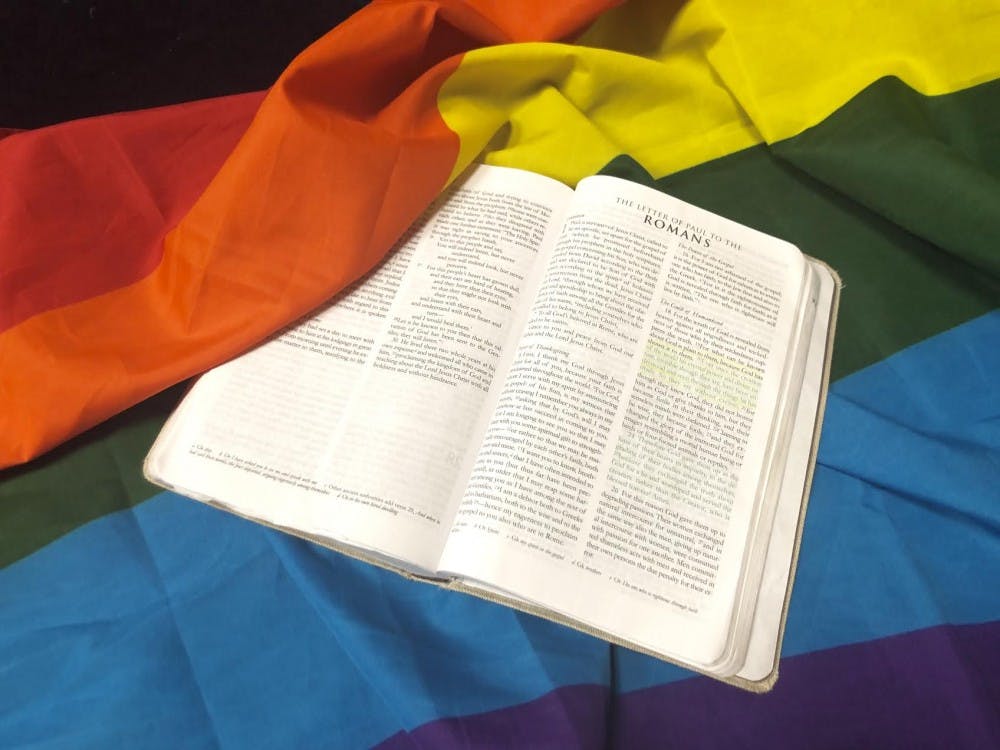Austin Maynor said he believes the Bible hasn't been the most welcoming book for the LGBTQ+ community. Now, he is aiming to change that.
Maynor is the openly gay director of the Pilgrimage, a recently established progressive student ministry at Binkley Baptist Church. His new Bible study series “Reading With a Queer Eye” flips traditionally exclusionary passages, viewing them through a "queer eye," as it were.
“The Bible, while being truth to me and to most Christians, is a problematic book,” Maynor said. “Our series does not back away from that.”
Historically, certain groups have used the Bible to justify plenty of prejudices and bigotry — slavery and homophobia among them. Every week, Maynor and a group of dedicated students meet at the church to discuss one of six Bible verses that they believe have been used to justify hateful behavior, re-evaluating them through a more progressive, LGBTQ+-friendly lens.
“When we reviewed Leviticus, part of the Hebrew Bible, we did not shy away from the fact that, in this way, the Bible is not affirming,” Maynor said. “So when we reach passages like that, that’s where we have to come together in discussion to say, 'OK, how do we respond to that? Is it important that we parallel the scripture?’ And I would argue that it’s not important.”
Maynor and the other participants in the series aim to establish that the Bible is meant to be interpreted, not taken word for word. A direct, literal reading, they contend, is not the only way to understand the text and, in many cases, is not the best one.
“It’s very refreshing,” said Maggie Mae O’Daniel, a student participating in the program. “It feels very welcoming to be able to read these passages in a way that doesn’t feel (condemning). Because we love Jesus and we know Jesus loves us, but it’s hard to reconcile faith and sexuality, and this has been a good way to see that the two can be reconciled.”
After just one session, the program is already making a positive impact on its participants, but they’re well aware of the many Christians that don’t share their open mindsets.
Jennifer Na, another participant in the program, said that simply having a space where all are understood and accepted as they are is actually radical within the church. She said the fact that anyone can attend and hold leadership positions is indicative of their mission to less accepting people.




